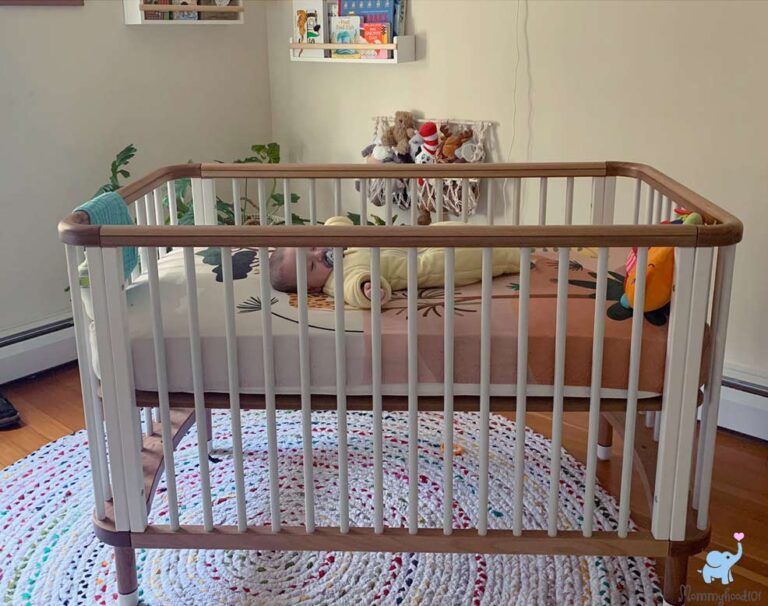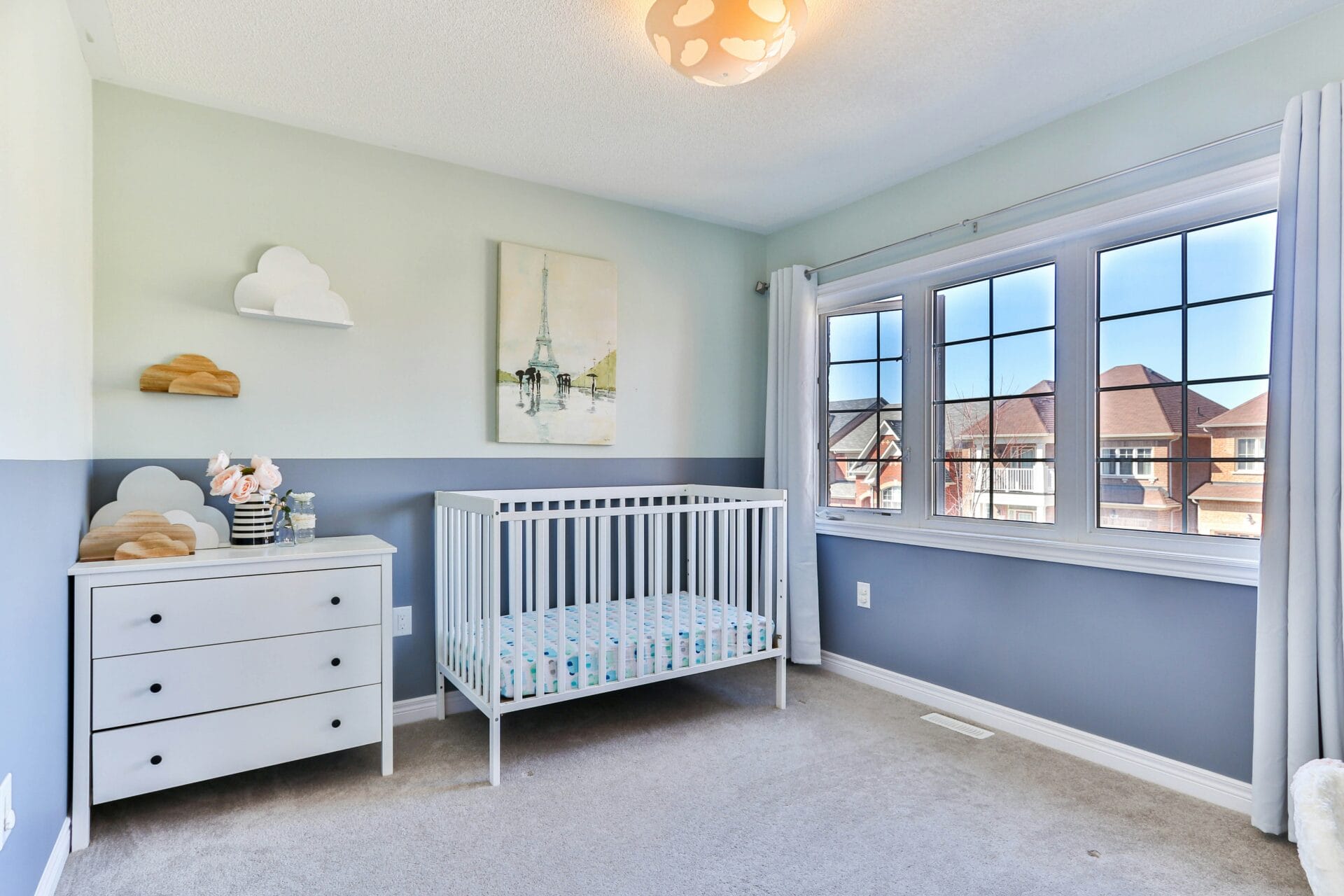

Introduction: Why Choosing the Right Baby Crib Matters
The best baby cribs for home use in 2025 aren’t just pieces of furniture — they’re safe, comfortable spaces where your little one will sleep, grow, and thrive during their earliest months.With so many options on the market, choosing the best baby crib for your home can feel overwhelming. In this complete 2025 buying guide, we break down everything you need to know: from crib types and safety features to the top 10 baby cribs that parents love most.
Types of Baby Cribs (Which One Is Right for You?)
1. Standard Cribs
The classic crib. Typically rectangular with fixed sides, standard cribs are sturdy and simple, perfect for everyday use.
2. Convertible Cribs
These cribs grow with your child — converting from a crib into a toddler bed, daybed, and even a full-size bed. A smart long-term investment.
3. Portable Cribs
Compact and lightweight, portable cribs are great for small homes or travel. Most models can fold up or roll between rooms.
4. Mini Cribs
Ideal for apartments or tight spaces. Mini cribs offer full functionality in a smaller size — great as a secondary crib or space-saving solution.
What to Look For: Key Factors in Choosing a Baby Crib
✅ 1. Safety Standards
Ensure the crib meets CPSC and ASTM safety guidelines. Look for fixed rails, smooth edges, proper slat spacing, and a firm mattress fit.
2. Size & Room Fit
Measure your nursery. A mini crib might be better for tight corners, while standard or convertible cribs need more space.
3. Convertibility
If you’re planning ahead, a 3-in-1 or 4-in-1 convertible crib is budget-friendly over the long term.
4. Materials & Finish
Solid wood and non-toxic finishes are best. Avoid painted or laminated models that might peel or contain harmful chemicals.
Top 10 Best Baby Cribs for Home in 2025
Here’s our expert list of the top-rated baby cribs, with pros and cons for easy comparison.
1. Graco Benton 4-in-1 Convertible Crib
Features: Converts to toddler bed, daybed, and full-size bed
✅ Pros: Affordable, reliable, stylish finish options
❌ Cons: Assembly instructions can be tricky
2. DaVinci Kalani 4-in-1 Convertible Crib
Features: Made with sustainable New Zealand pine; GREENGUARD Gold Certified
✅ Pros: Excellent safety rating, beautiful design
❌ Cons: Slightly higher cost
3. Babyletto Hudson 3-in-1 Convertible Crib
Features: Modern style, eco-friendly materials
✅ Pros: Compact, easy to assemble
❌ Cons: Fewer color options
4. Delta Children Emery 4-in-1 Convertible Crib
Features: Budget-friendly, JPMA certified
✅ Pros: Adjustable mattress, versatile look
❌ Cons: Durability concerns from some users
5. Dream On Me Ashton 5-in-1 Convertible Crib
Features: Converts to 5 configurations, multiple colors
✅ Pros: Excellent value, strong build
❌ Cons: Conversion kit sold separately
6. Union 3-in-1 Convertible Crib
Features: Compact design, sustainable wood
✅ Pros: Great for small spaces, non-toxic finish
❌ Cons: Mattress support may sag over time
7. Storkcraft Tuscany 4-in-1 Convertible Crib
Features: Sleek sleigh style with drawer storage
✅ Pros: Easy to assemble, space-saving drawer
❌ Cons: Paint may chip with use
8. Delta Children Canton 4-in-1 Convertible Crib
Features: Solid hardwood frame
✅ Pros: Elegant design, adjustable mattress
❌ Cons: Conversion kits not included
9. Million Dollar Baby Classic Sullivan 4-in-1 Crib
Features: High-end craftsmanship, timeless look
✅ Pros: Stylish and durable
❌ Cons: Price is higher than average
10. Babyletto Gelato 4-in-1 Convertible Crib
Features: Customizable legs, modern design
✅ Pros: Unique style, eco-safe finish
Cons: Mattress support could be stronger
How to Set Up a Baby Crib (Step-by-Step)
Unbox all parts and hardware
Read the manufacturer’s manual carefully
Assemble the frame starting with base and sides
Attach mattress support and slats
Place the mattress and test for wobble or gaps
Adjust mattress height as needed for baby’s age
Baby Crib Safety Tips Every Parent Must Know
Use a firm, tight-fitting mattress
Avoid pillows, bumpers, and soft bedding
Register your crib to stay updated on recalls
Keep the room cool and ventilated
Lower the mattress as your baby starts standing
Never leave loose toys or hanging cords near the crib
Cleaning & Maintenance Tips for Baby Cribs
Wipe with a damp cloth weekly to remove dust
Avoid harsh cleaners; use mild baby-safe soaps
Check monthly for loose screws or cracks
Wash bedding regularly using gentle detergent
Conclusion: Invest in Comfort, Safety & Longevity
A good crib is more than just a bed — it’s a safe space for your baby to sleep and grow. By focusing on quality, safety, and design, you’ll ensure your nursery is both functional and beautiful. Whether you choose a modern convertible crib or a compact mini model, your choice will make a lasting impact on your baby’s early life.
FAQs: Baby Cribs for Home
Q: What age should I move my baby from crib to toddler bed?
A: Usually between 18 months to 3 years, depending on your child’s activity level and size.
Q: Can I use a second-hand crib safely?
A: Only if it meets current safety standards, has no recalls, and is in good condition.
Q: How often should I clean the crib?
A: Weekly surface cleaning is recommended; wash bedding every few days.
Q: Are drop-side cribs still allowed?
A: No, drop-side cribs are banned in the U.S. due to safety risks.
Q: What’s the safest crib mattress?
A: A firm, flat, and snug-fitting mattress that meets all safety certifications.
Cribs Studio helps parents make smarter choices with trusted guides, expert crib reviews, and nursery safety tips. From newborn essentials to toddler transitions — we've got you covered